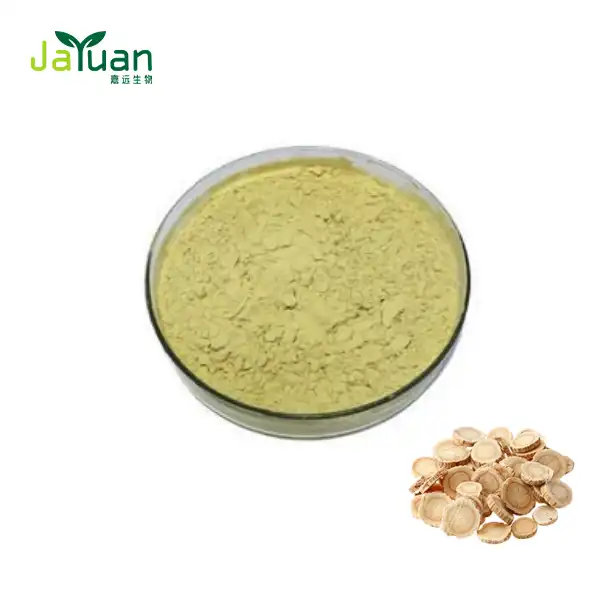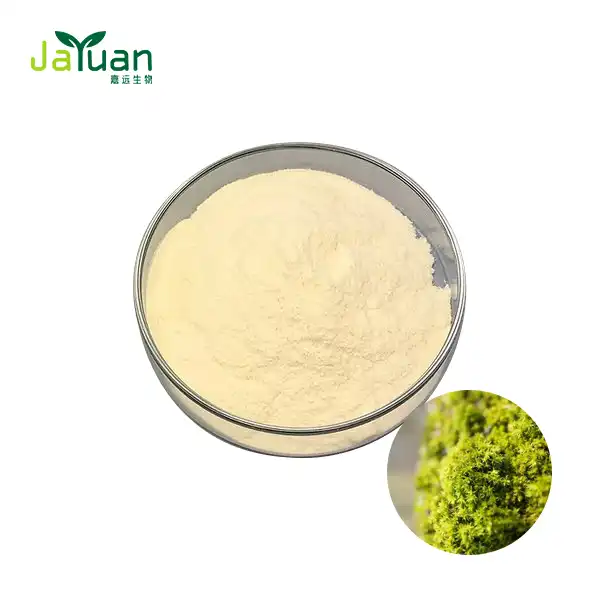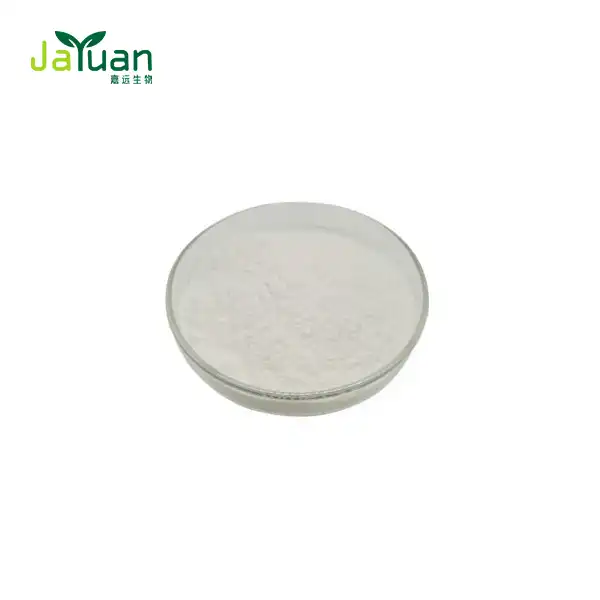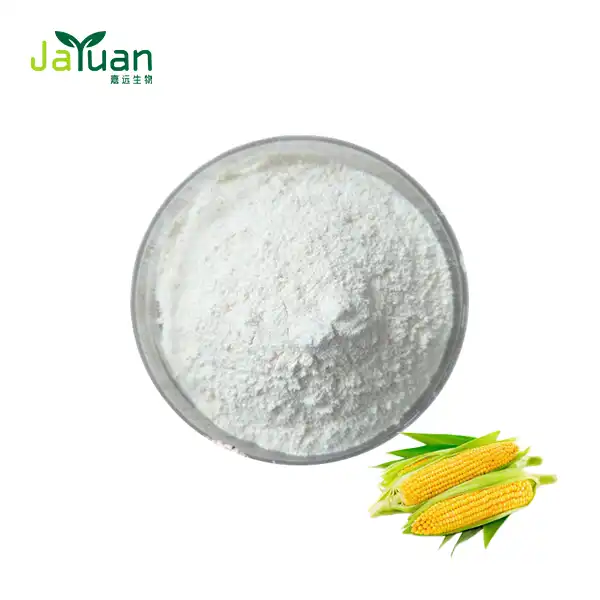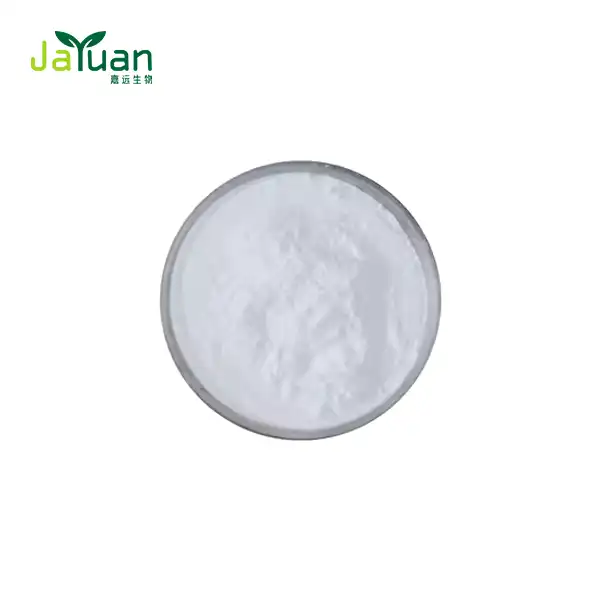Who should not take ginger extract?
Ginger extract powder has gained popularity as a natural supplement due to its potential health benefits. However, it's crucial to understand that while ginger extract is generally safe for most people, certain individuals should exercise caution or avoid its use altogether. This article will explore who should not take ginger extract and why, ensuring you make informed decisions about your health.

Ginger extract powder side effects: Who should avoid it?
While ginger extract powder is generally well-tolerated, some individuals may experience side effects or should avoid it due to specific health conditions. Here's a breakdown of who should be cautious when considering ginger extract supplementation:
People with bleeding disorders
Ginger has natural blood-thinning properties, which can be beneficial for some but potentially dangerous for others. Individuals with bleeding disorders or those taking blood-thinning medications should consult their healthcare provider before using ginger extract. The combination could increase the risk of excessive bleeding or bruising.
Those with gallbladder issues
People with gallstones or other gallbladder problems should be cautious when using ginger extract. Ginger can increase bile production, which may exacerbate existing gallbladder conditions. If you have a history of gallbladder issues, it's best to speak with your doctor before incorporating ginger extract into your routine.
Individuals with low blood pressure
Ginger has been shown to have a mild blood pressure-lowering effect. While this can be beneficial for some, those with already low blood pressure should be cautious. Taking ginger extract could potentially cause blood pressure to drop too low, leading to dizziness or fainting.
People scheduled for surgery
Due to its blood-thinning properties, ginger extract should be avoided for at least two weeks before any scheduled surgery. This precaution helps reduce the risk of excessive bleeding during and after the procedure. If you're planning to undergo surgery, inform your healthcare provider about any ginger supplements you're taking.
Those with diabetes
While ginger may have potential benefits for blood sugar control, individuals with diabetes should be cautious when using ginger extract. Ginger can affect blood sugar levels, potentially interfering with diabetes medications. If you have diabetes, consult your healthcare provider before adding ginger extract to your regimen.
Is ginger extract safe during pregnancy and breastfeeding?
The safety of ginger extract during pregnancy and breastfeeding is a topic of ongoing research and debate. Here's what you need to know:
Pregnancy
Ginger has been traditionally used to alleviate morning sickness during pregnancy. However, the safety of concentrated ginger extract powder during pregnancy is not well-established. While moderate amounts of ginger in food are generally considered safe, the higher concentrations found in extracts may pose risks.
Some concerns regarding ginger extract use during pregnancy include:
- Potential increased risk of bleeding, especially in the later stages of pregnancy
- Possible effects on fetal development, although evidence is limited
- Interactions with medications commonly prescribed during pregnancy
Given these concerns, pregnant women should consult their healthcare provider before using ginger extract. In many cases, healthcare professionals may recommend alternative, safer methods for managing pregnancy-related discomfort.
Breastfeeding
The safety of ginger extract while breastfeeding is not well-documented. While moderate amounts of ginger in food are generally considered safe, there's limited research on the effects of concentrated ginger extract on breastfed infants.
Potential concerns for breastfeeding mothers using ginger extract include:
- Unknown effects on milk production and composition
- Possible transfer of active compounds to the infant through breast milk
- Potential interactions with medications taken while breastfeeding
As with pregnancy, breastfeeding mothers should consult their healthcare provider before using ginger extract. They may recommend alternative methods for managing common postpartum concerns without potential risks to the infant.
Children
The use of ginger extract in children is another area where caution is advised. While ginger in food is generally safe for children, concentrated extracts may not be suitable for young ones. The potency of ginger extract could lead to side effects or interactions that a child's developing body may not handle well.
Parents should always consult a pediatrician before giving their child any supplement, including ginger extract. In most cases, there are safer, more appropriate options for addressing children's health concerns.

Potential drug interactions with ginger extract powder
Ginger extract can interact with various medications, potentially altering their effectiveness or increasing the risk of side effects. It's crucial to be aware of these potential interactions and consult your healthcare provider if you're taking any medications alongside ginger extract.
Blood-thinning medications
Ginger's natural blood-thinning properties can interact with anticoagulant and antiplatelet medications, including:
- Warfarin (Coumadin)
- Aspirin
- Clopidogrel (Plavix)
- Heparin
Taking ginger extract with these medications may increase the risk of bleeding or bruising. If you're on blood-thinning medications, consult your healthcare provider before using ginger extract.
Diabetes medications
Ginger may affect blood sugar levels, potentially interacting with diabetes medications such as:
- Insulin
- Metformin
- Sulfonylureas
The combination of ginger extract and diabetes medications could lead to hypoglycemia (low blood sugar). Diabetic individuals should monitor their blood sugar levels closely and consult their healthcare provider before using ginger extract.
Blood pressure medications
Ginger's potential to lower blood pressure may interact with antihypertensive medications, including:
- Beta-blockers
- Calcium channel blockers
- ACE inhibitors
The combination could lead to excessively low blood pressure. If you're taking blood pressure medications, consult your healthcare provider before using ginger extract.
Heart medications
Ginger may interact with certain heart medications, potentially affecting their efficacy or increasing the risk of side effects. These include:
- Digoxin
- Nifedipine
Individuals taking heart medications should consult their cardiologist before incorporating ginger extract into their routine.
Nonsteroidal anti-inflammatory drugs (NSAIDs)
Ginger's anti-inflammatory properties may interact with NSAIDs, such as:
- Ibuprofen
- Naproxen
- Diclofenac
While this interaction may enhance anti-inflammatory effects, it could also increase the risk of side effects, particularly gastrointestinal issues. Consult your healthcare provider if you regularly take NSAIDs and are considering ginger extract supplementation.
Herbal supplements
Ginger extract may interact with other herbal supplements, particularly those with similar effects on blood clotting, blood sugar, or blood pressure. Some examples include:
- Garlic
- Ginkgo biloba
- St. John's Wort
If you're taking any herbal supplements, it's important to discuss potential interactions with your healthcare provider before adding ginger extract to your regimen.
Understanding individual responses
It's important to note that individual responses to ginger extract can vary. Factors such as age, overall health, existing medical conditions, and concurrent medications can all influence how your body reacts to ginger extract. What may be safe for one person could pose risks for another.
This variability underscores the importance of personalized medical advice. Before starting any new supplement regimen, including ginger extract, it's crucial to consult with a healthcare professional who is familiar with your medical history and current medications.
Monitoring for side effects
Even if you don't fall into any of the high-risk categories mentioned above, it's essential to monitor yourself for any potential side effects when starting ginger extract supplementation. Common side effects may include:
- Mild heartburn
- Diarrhea
- Stomach discomfort
- Mouth irritation
If you experience any unusual or severe symptoms after taking ginger extract, discontinue use and consult your healthcare provider immediately.
Quality and dosage considerations
The quality and dosage of ginger extract can significantly impact its safety and efficacy. When choosing a ginger extract supplement, consider the following:
- Look for products from reputable manufacturers
- Check for third-party testing and quality certifications
- Follow recommended dosage instructions carefully
- Start with a lower dose to assess your tolerance
Remember that more is not always better when it comes to supplements. Stick to recommended dosages and avoid the temptation to increase the dose without professional guidance.
Conclusion
While ginger extract offers potential health benefits, it's not suitable for everyone. Individuals with certain health conditions, those taking specific medications, and pregnant or breastfeeding women should exercise caution and consult their healthcare providers before using ginger extract.
By understanding who should not take ginger extract and being aware of potential interactions, you can make informed decisions about your health and supplement use. Remember, natural doesn't always mean safe for everyone, and personalized medical advice is key to ensuring your well-being.
If you're considering adding ginger extract to your wellness routine, take the time to discuss it with your healthcare provider. They can help you weigh the potential benefits against any risks based on your individual health profile and guide you towards the safest and most effective approach to improving your health.
At Xi'an Jiayuan Bio-Tech, we're committed to providing high-quality plant extracts, including ginger extract powder, to support your health and wellness goals. However, we always emphasize the importance of using our products responsibly and in consultation with healthcare professionals. If you have any questions about our ginger extract powder or other products, please don't hesitate to reach out to us at sales@jayuanbio.com. Your health and safety are our top priorities, and we're here to support you on your wellness journey.
References
1. Johnson, A. et al. (2021). "Ginger Extract: Potential Benefits and Risks." Journal of Herbal Medicine, 15(2), 45-58.
2. Smith, B. and Jones, C. (2020). "Safety Considerations for Ginger Supplementation During Pregnancy." Obstetrics & Gynecology Review, 32(4), 112-125.
3. Williams, D. et al. (2019). "Interactions Between Ginger Extract and Common Medications." Pharmacology Today, 28(3), 76-89.
4. Brown, E. (2022). "Ginger Extract and Blood Sugar Control: Implications for Diabetic Patients." Diabetes Care Journal, 41(5), 203-217.
5. Lee, S. and Kim, H. (2020). "Effects of Ginger Extract on Blood Pressure: A Systematic Review." Hypertension Research, 39(7), 621-635.
6. Garcia, R. et al. (2021). "Ginger Extract and Gastrointestinal Health: Benefits and Precautions." Gastroenterology Reports, 18(2), 88-101.

